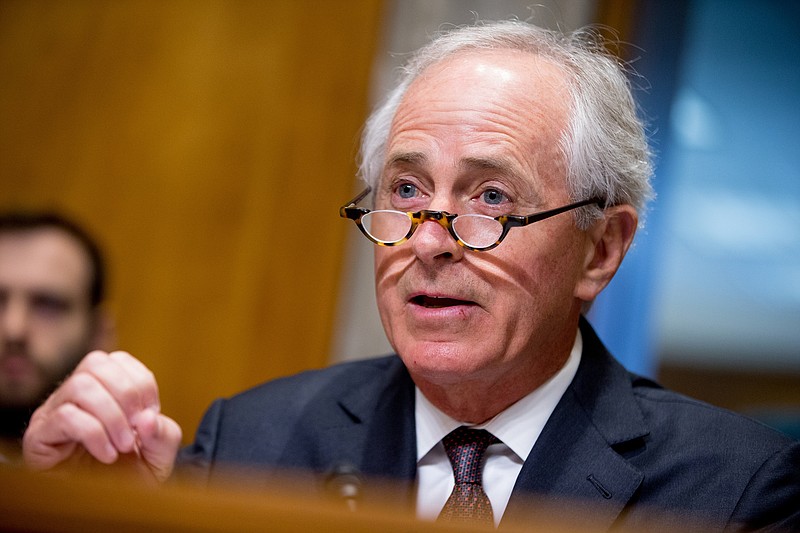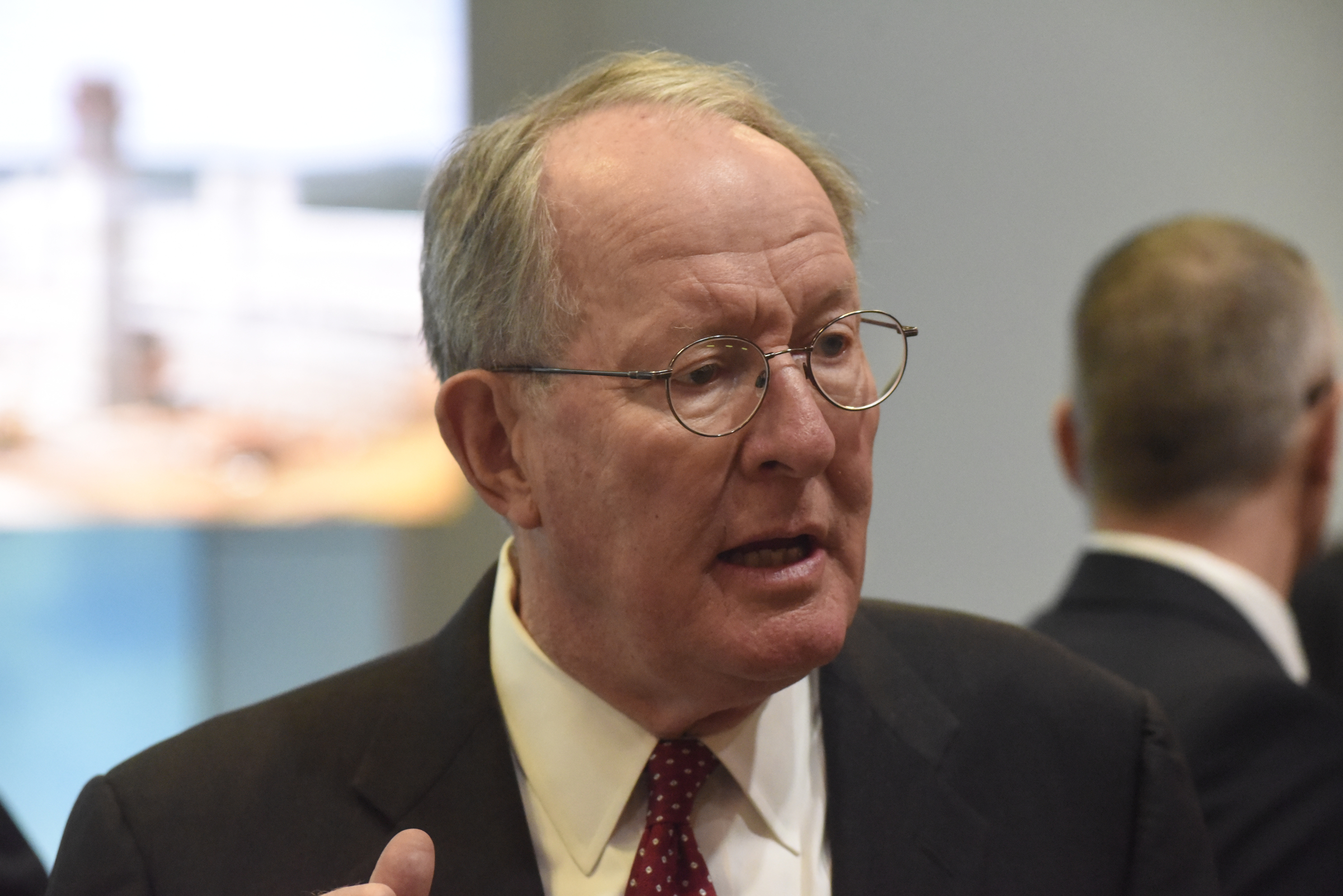Dismayed Republicans scrambled for cover Tuesday from Donald Trump's inflammatory response to the Orlando massacre, with both of Tennessee's Republican senators backing away from fully supporting the presumptive GOP nominee.
"I continue to be discouraged by the direction of the campaign and comments that are made," said Sen. Bob Corker of Tennessee, Republican chairman of the Foreign Relations Committee. Monday's Trump address was not "the type of speech that one would give that wants to lead this country through difficult times."
"In an effort to be constructive, I have offered public encouragement at important times, but I must admit that I am personally discouraged by the results," said Corker, who has been mentioned as a possible vice presidential pick for Trump.
U.S. Sen. Lamar Alexander, R-Tenn., went so far as to suggest Trump might not end up as the party's nominee after all.
"We do not have a nominee until after the convention," Alexander asserted in response to a question. Reminded that Trump is the presumptive GOP nominee, Alexander retorted, "That's what you say."
Among other things, Trump suggested moderate Muslims and perhaps even President Obama himself might sympathize with radical elements. He renewed his call to temporarily ban foreign Muslims from entering the country, and added a new element: a suspension of immigration from areas of the world with a proven history of terrorism against the U.S. and its allies.
"Mr. Trump seems to be suggesting that the president is one of them, I find that highly offensive, I find that whole line of reasoning way off-base," said Sen. Lindsey Graham of South Carolina. "Mr. Trump's reaction to declare war on the faith is the worst possible solution."
In Washington, President Obama said of Muslim-Americans: "Are we going to start subjecting them to special surveillance? Are we going to discriminate against them because of their faith?" After meeting with counterterrorism officials, a stern-faced Obama said: "We heard these suggestions during the course of this campaign. Do Republican officials actually agree with this? Because that's not the America we want."
Trump responded to Obama's criticism in a statement accusing the president of continuing "to prioritize our enemy over our allies." At a fiery rally hours later in Greensboro, North Carolina, Trump said the president appeared angrier at him than he was at the Orlando gunman.
"That's the kind of anger he should have for the shooter and these killers that shouldn't be here," Trump told the crowd, echoing comments he made to a conservative radio host Monday.
Speaking to thousands of supporters for the first time since the attacks, Trump repeated claims that Syrian refugees are admitted into the U.S. without any screening and that neighbors of the perpetrators of December's shooting in San Bernardino, California, knew about it in advance but said nothing to police.
Trump also boasted about his decision to stop issuing press credentials to The Washington Post, because of a headline he disliked.
"I did it with The Washington Post. I'm so happy," Trump said. "Where's The Washington Post? They're probably somewhere. Maybe they're in the back, in the back bleachers."
House Republicans said they would meet with Trump on July 7, but the reactions of lawmakers underscored an atmosphere of anxiety and unease among Capitol Hill Republicans, who hoped to see Trump moderate his impulses in the weeks since clinching the nomination.
As he has in the past, House Speaker Paul Ryan denounced Trump's plans, saying: "I do not think a Muslim ban is in our country's interest. I do not think it is reflective of our principles not just as a party, but as a country. And I think the smarter way to go in all respects is to have a security test and not a religious test."
Ryan, who endorsed Trump only recently after a lengthy delay as he grappled with the implications of the celebrity businessman's candidacy, ignored shouted questions about whether he stood by his support. Senate Majority Leader Mitch McConnell told reporters he would not be commenting Tuesday about Trump.

